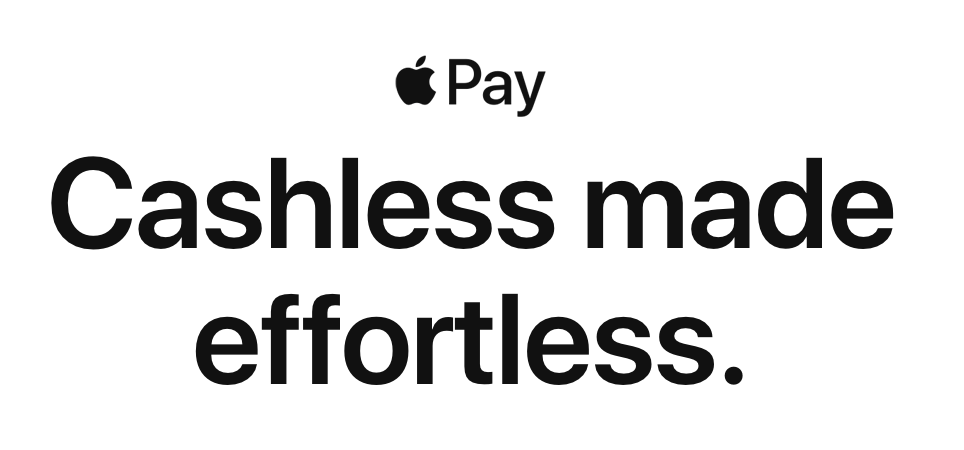Skip to main content Navbar items Home Menu Shortcuts updater Administration menu Content Structure Appearance People Modules Configuration Reports Vertical orientation Edit Blog Post Apple Pay under Scrutiny: Calls for Contactless Payments Give Rise to Competition ConcernsHome Apple Pay under Scrutiny: Calls for Contactless Payments Give Rise to Competition ConcernsPrimary tabsViewEdit(active tab)RevisionsDevel Title * Apple Pay under Scrutiny: Calls for Contactless Payments Give Rise to Competition Concerns Summary (Hide summary) Leave blank to use trimmed value of full text as the summary. Body
Calls for safer transactions during the novel coronavirus pandemic have contributed to a 150% increase in the use of contactless payments since 2019. Experts estimate that mobile payment transactions will total $161.41 billion by 2021. Given the increased need for contactless payments, the American House of Representatives and Department of Justice, as well as the European Union’s European Commission, have launched investigations into Apple’s Apple Pay service. These investigations seek to evaluate Apple’s “power and potential anticompetitive behavior.”
According to a Washington Post article, two competition concerns drive the investigations into Apple Pay:
- Apple’s exclusive control over iPhones’ “near-field communication” technology, essentially a chip in the iPhone that allows consumers to use their phones to pay at store checkout counters; and
- Apple’s forced terms of agreement to merchants who accept Apple Pay.
Apple in the Antitrust Spotlight
Antitrust laws are “rules of the competitive marketplace.” These laws protect consumers from destructive business practices, according to the Federal Trade Commission. The chief goal of antitrust laws is to encourage aggressive competition among sellers to give consumers “the benefits of lower prices, higher quality products and services, more choices, and greater innovation.”
Apple Pay – A Monopoly on Mobile Contactless Payments?

Apple Pay debuted in 2014, launching the mobile contactless payment market. Currently, Apple Pay controls the largest share of the mobile contactless payment market in the United States. It’s no surprise that Apple has collected a horde of rivals. Rivals’ antitrust complaints target Apple Pay and Apple Store.
Apple Pay allows consumers to use their iPhones to pay for goods at participating stores. To make this work, Apple Wallet, a digital wallet, stores a digitized version of a consumer’s credit or debit card. Then, when at the checkout counter, a “near-field communication” (NFC) chip, located within the iPhone, communicates with the store’s contactless terminal.
“Viola! Look ma, no wallet!” The days of searching pockets and purses are over. Convenient, right?
Well, maybe not. The problem: Apple’s NFC chip is “closed.” So, only cards stored in a consumer’s Apple Wallet can access the chip and use the contactless payment feature. As a result, card issuers must enter into an Apple Pay agreement to permit its customers to make mobile contactless payments with their credit and/or debit cards. As reported in the Guardian, according to American and European government officials, this means denying consumers access to better quality, innovation, and competitive prices. Rivals allege the “closed” chip stifles iPhone users’ ability to pick from other mobile contactless payment services such as Google Pay and Microsoft Wallet, among others. These rivals allege Apple Pay significantly interferes with their ability to compete in the mobile contactless payment market.
In 2019, the Department of Justice began an unofficial antitrust investigation into Apple to determine if it has engaged in anti-competitive business practices. In a public statement, the DOJ announced it would review “whether and how market-leading online platforms have achieved market power and are engaging in practices that have reduced competition, stifled innovation, or otherwise harmed consumers.”
Last year, the House of Representatives launched a broad investigation into four major tech companies, including Apple. The House has requested extensive documentation and Tim Cook’s presence at an antitrust committee hearing. It remains uncertain whether Cook will attend. Apple is also in the EU’s competition law crosshairs. France already fined Apple this past March nearly $1.2 billion for antitrust violations. While European Commission’s investigation largely targets the Apple Store, it is also investigating Apple Pay for the restriction placed on the iPhone’s NFC chip. Companies like PayPal allege this restriction stifles iPhone users from using rival payment options.
Although American and European officials have not completed their investigations into Apple Pay, it is likely more lawsuits against Apple are on the horizon. Until then, experts like Tim Derdenger, a professor at Carnegie Mellon’s Tepper School of Business, urge legislators to act sooner rather than later.
-by Allison Hedrick